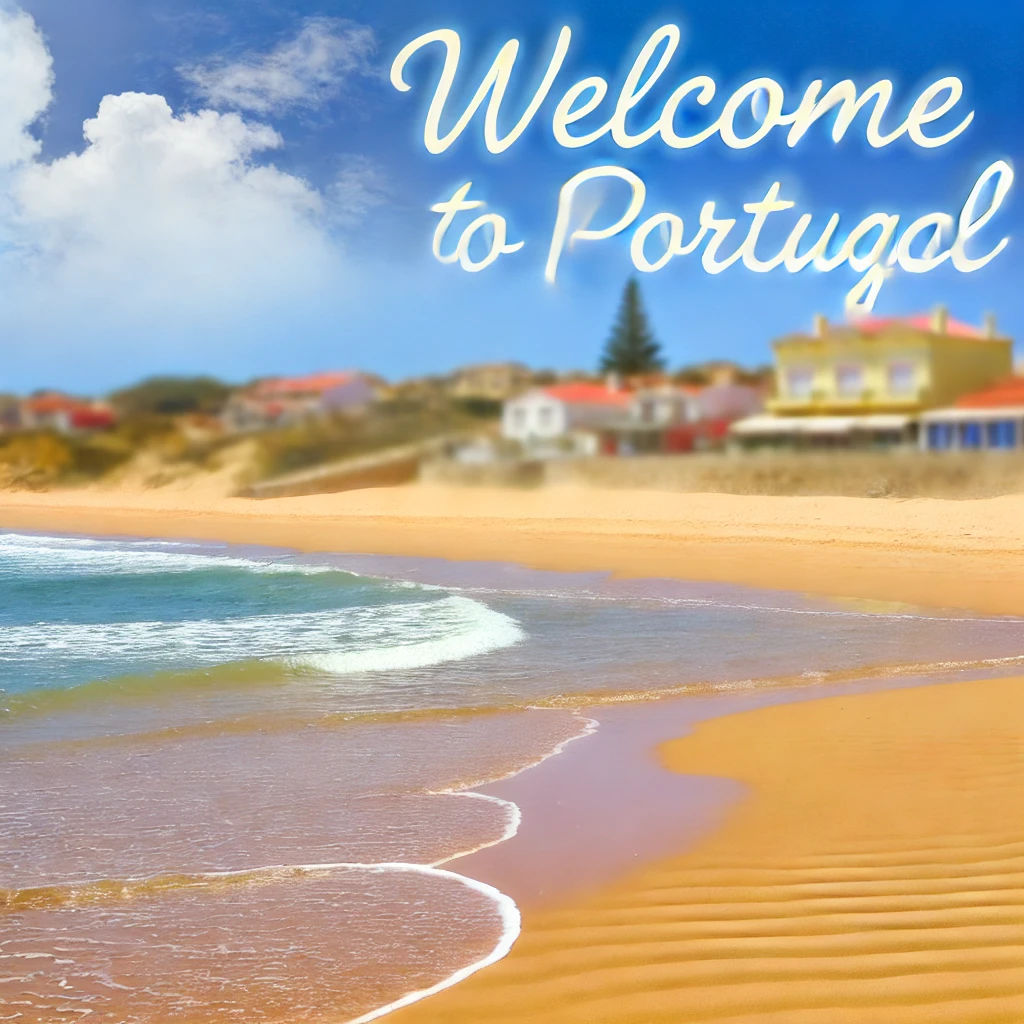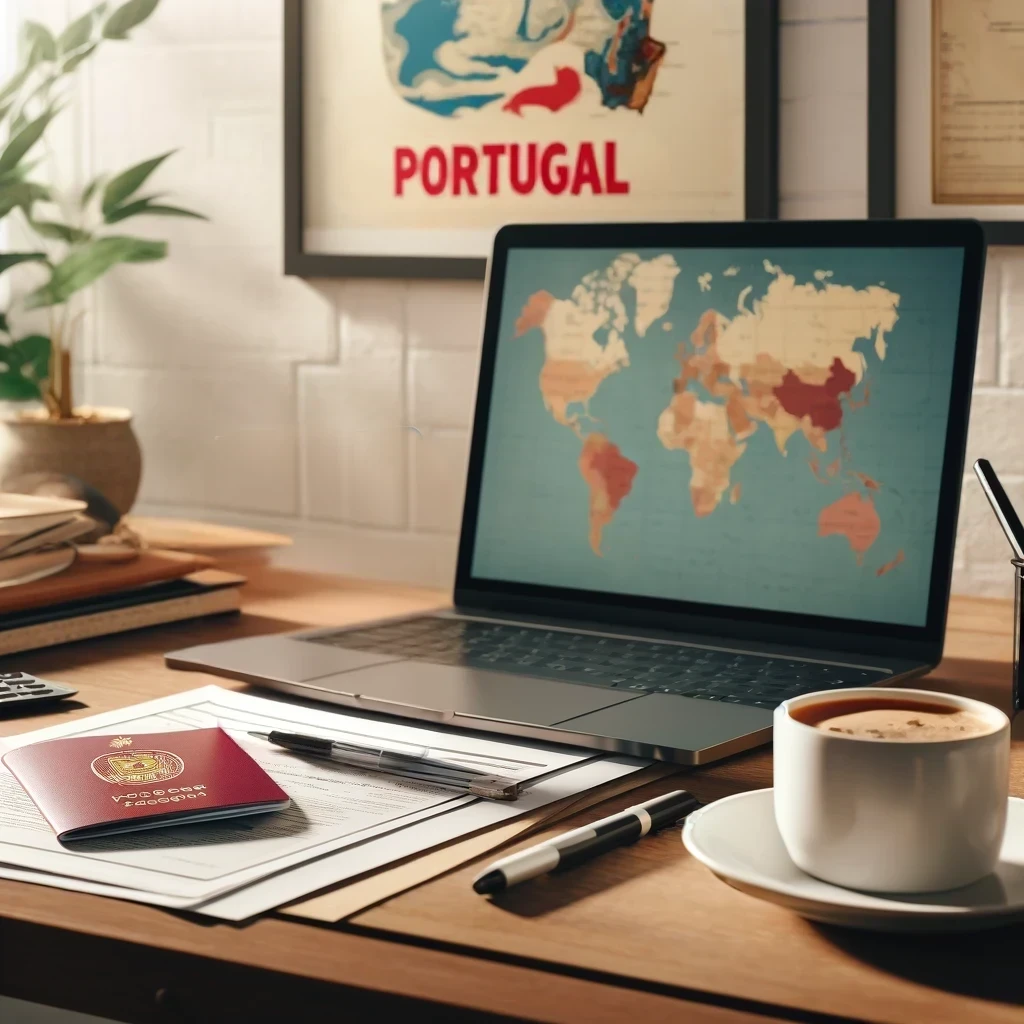Thinking about moving to Portugal? You’re not alone. With beautiful landscapes, a warm climate, and a relaxed lifestyle, Portugal is a top destination for expats. This guide covers everything you need to know, from visas and housing to everyday life in this stunning country.
Why Move to Portugal?

Portugal offers many reasons to start fresh. First, the weather is a big draw. With over 300 sunny days a year, it’s ideal for those who love being outdoors. Furthermore, Portugal has a lower cost of living than many European countries. This makes it easier for expats to enjoy dining out, leisure activities, and a high quality of life.
Portugal is known for its friendly people and welcoming expat communities. Whether you’re looking for a bustling city like Lisbon or a peaceful village in the Algarve, there’s a place that feels right for you. In addition, the country’s rich history and beautiful scenery add to its charm.
Safety in Portugal: Peace of Mind for Expats

One of the best reasons to move to Portugal is its reputation as one of the safest countries in Europe. Low crime rates make it a great choice for families, retirees, and solo travelers. In fact, Portugal often ranks high in the Global Peace Index. Smaller cities like Caldas da Rainha provide a safe and comfortable environment where residents can relax.
The strong sense of community in Portugal adds to this feeling of security. Neighbors look out for each other, and it’s normal to see people exchanging friendly greetings on the streets. Whether you’re taking a walk along the coast or visiting a city center, the atmosphere feels welcoming and safe. For those looking for a new home, knowing that Portugal is a secure place offers extra peace of mind, making it an ideal choice for relocation.
How to Get a Visa for Moving to Portugal

Getting a visa is one of the first steps when you move to Portugal. If you are an EU citizen, you can come here without a visa. On the other hand, if you are not an EU citizen, you need a visa. The type of visa you need depends on your situation. Here are the common options:
- D7 Visa (Passive Income Visa): This visa is for people with steady income, like from rentals or investments. Many retirees use this option.
- D2 Visa (Entrepreneur Visa): This visa is for people who want to start a business in Portugal. It allows you to open your business and live here.
- Golden Visa: As of October 2023, the rules for the Golden Visa have changed. You can no longer get this visa by buying property. Instead, you can get a Golden Visa by investing in venture capital, funding cultural projects, or making significant contributions to businesses in Portugal.
Before you apply, gather important documents. You will need proof of income, health insurance, and a clean criminal record. It is also a good idea to talk to a local immigration lawyer for help.
Finding a Place to Live in Portugal

Housing is another key part of moving to Portugal. You can choose from modern apartments in cities or charming countryside homes. Popular areas include:
- Lisbon: Portugal’s capital is vibrant, with a mix of culture, history, and nightlife. It’s great for those who want to be at the center of activity.
- Porto: Famous for its wine and riverside views, Porto offers a more affordable option than Lisbon. It’s perfect if you prefer a slower pace.
- Algarve: Known for its beautiful beaches and year-round sunshine, the Algarve is a favorite for retirees and families looking for a peaceful coastal life.
It’s wise to rent before buying property. Renting allows you to explore different areas and find a community that suits your lifestyle. Plus, it helps you avoid long-term commitments before you’re ready. Learn more about finding hidden gems and the best places to live in Portugal in our detailed guide.
Understanding the Cost of Living in Portugal

One reason people love moving to Portugal is its affordability. But how much does it really cost to live here? Here’s a quick breakdown:
- Housing: Rent varies by location. For example, a one-bedroom apartment in Lisbon costs between €800-€1,200 per month. In smaller towns, it can be as low as €400.
- Groceries: Monthly groceries for a couple range from €200-€400, depending on lifestyle.
- Dining Out: A meal at a budget-friendly restaurant costs around €10. A three-course meal at a mid-range restaurant might be about €25-€35.
- Transportation: Public transport is efficient and affordable. A monthly pass in Lisbon is around €40. Owning a car adds insurance and fuel costs.
Overall, Portugal offers great value for money, which is why many expats choose to move here.
Adapting to Life in Portugal

Living in Portugal means adjusting to new customs and culture. For example, the Portuguese enjoy a slower pace of life. Shops often close for long lunch breaks, and things move at a relaxed pace. Learning some basic Portuguese phrases can help you make friends and feel more at home.
Additionally, healthcare in Portugal is important for expats to consider. The country offers both public and private healthcare. While public healthcare is available to residents, many expats choose private insurance for faster service. As a result, you can access a broader range of healthcare providers.
Starting a Business in Portugal

Portugal is a great place to start a business. It is especially good for tourism, tech, and food. The economy is growing, and there are many incentives for new entrepreneurs. For example, Portugal’s beautiful landscapes attract millions of tourists each year. This creates many opportunities for businesses in hospitality and services. The D2 Visa also helps small business owners by providing a clear path to residency.
Starting a business here has some challenges. Social security contributions can be high, which makes it hard for small companies to keep costs low. Entrepreneurs also need to follow many rules and regulations, which can feel overwhelming.
If you want to see how it’s done, check out our YouTube channel. We share our journey of starting a business in Portugal from scratch. Along the way, we give tips and share lessons learned. You will also find helpful insights about navigating the Portuguese market and overcoming common challenges.
Challenges of Moving to Portugal

Moving to Portugal has its challenges. One major challenge is the local bureaucracy. It can be slow and hard to understand. For instance, many government offices only speak Portuguese. This can make it tough for non-speakers to find the information they need. In these cases, it helps to have a friend who speaks Portuguese or to hire a translator for important paperwork.
The language barrier can also be difficult. In tourist areas, many people speak English. However, this is not always true in rural areas. As a result, you might feel frustrated or isolated. Nevertheless, many expats find that learning some basic Portuguese phrases helps them interact better. This effort can make you feel more at home.
Despite these challenges, living in Portugal offers many rewards. Patience and an open mind are important for overcoming these issues. Moreover, the local community is friendly and welcoming. People appreciate when you try to speak their language. If you find yourself frustrated by some of the processes, try to focus on the positives. The beautiful scenery—from stunning coastlines to charming towns—reminds you why you chose to move here. This perspective can make the challenges easier to handle.
Conclusion: Is Moving to Portugal Right for You?

Moving to Portugal can change your life. The country has beautiful landscapes and friendly people. It also has a lower cost of living than many other European countries. Whether you want to retire, start a business, or enjoy a new adventure, Portugal has something for you.
The welcoming atmosphere makes it easy for newcomers to settle in. There is a strong expat community, and many locals are eager to help. With its rich culture, tasty food, and relaxed lifestyle, Portugal invites you to build a fulfilling life. If you are thinking about a move, consider this: Portugal might be the perfect place for your next chapter.
Got questions about moving to Portugal? Contact us by email or WhatsApp—we’re here to share our experience and help you make the move.


